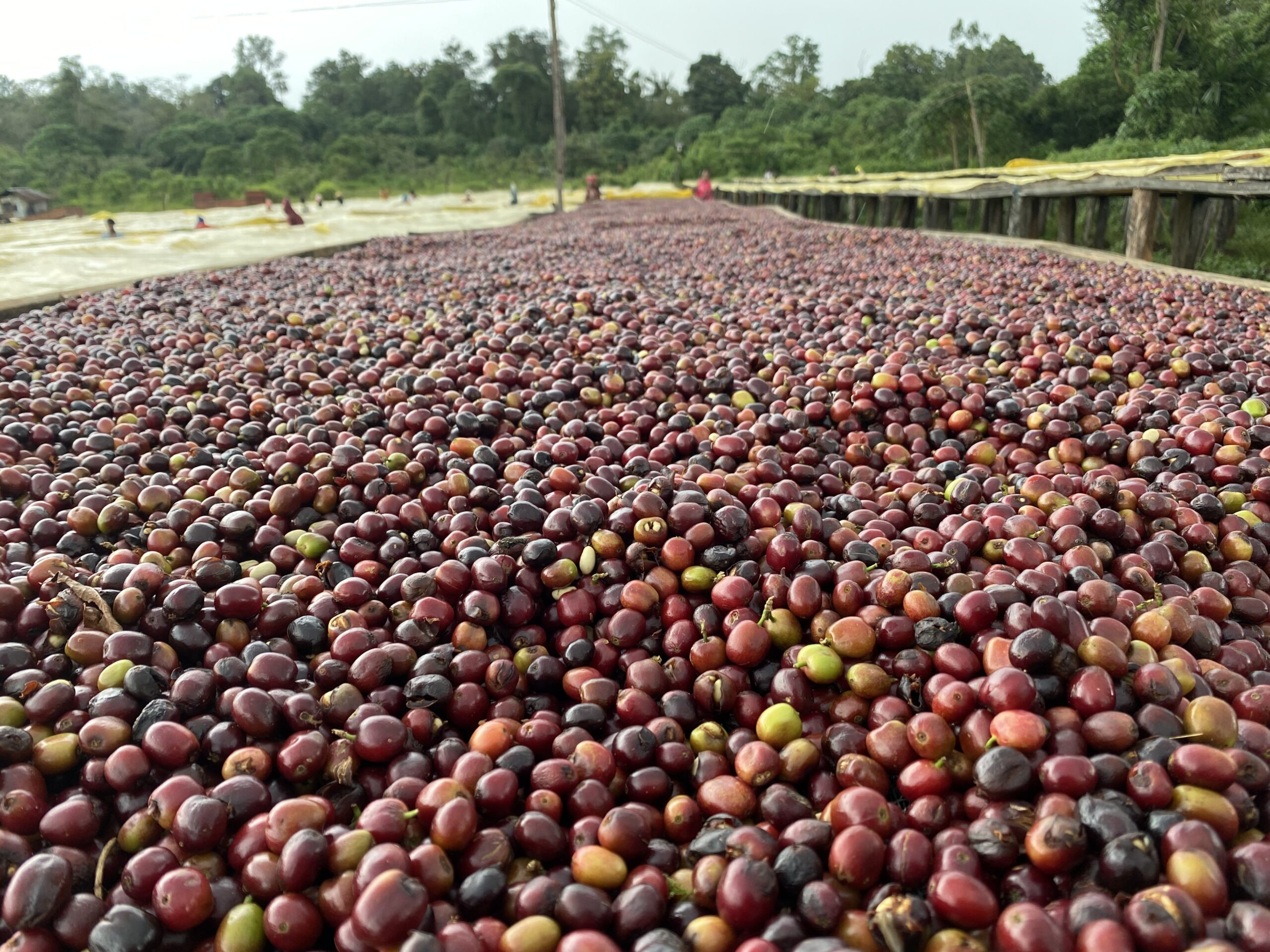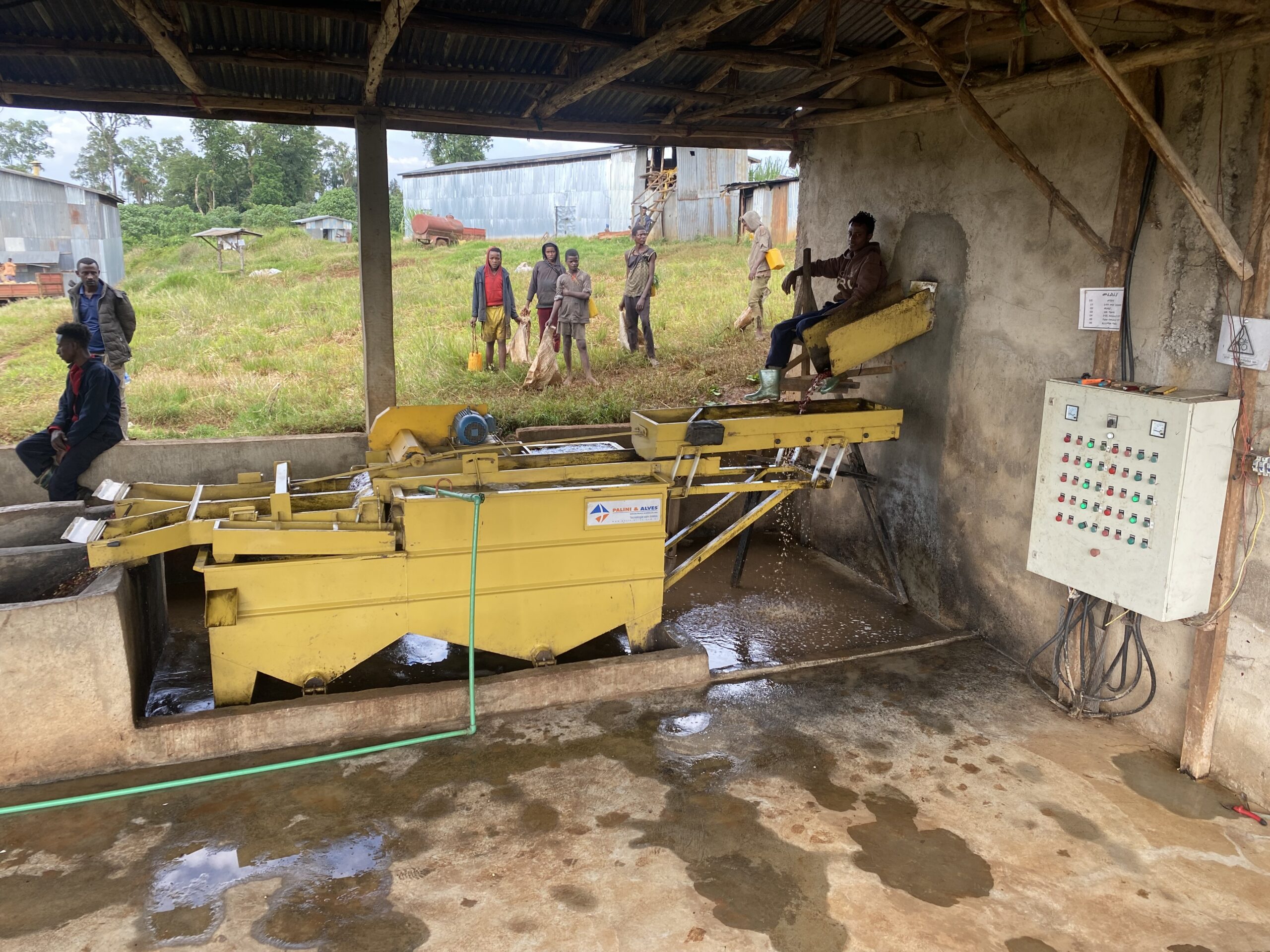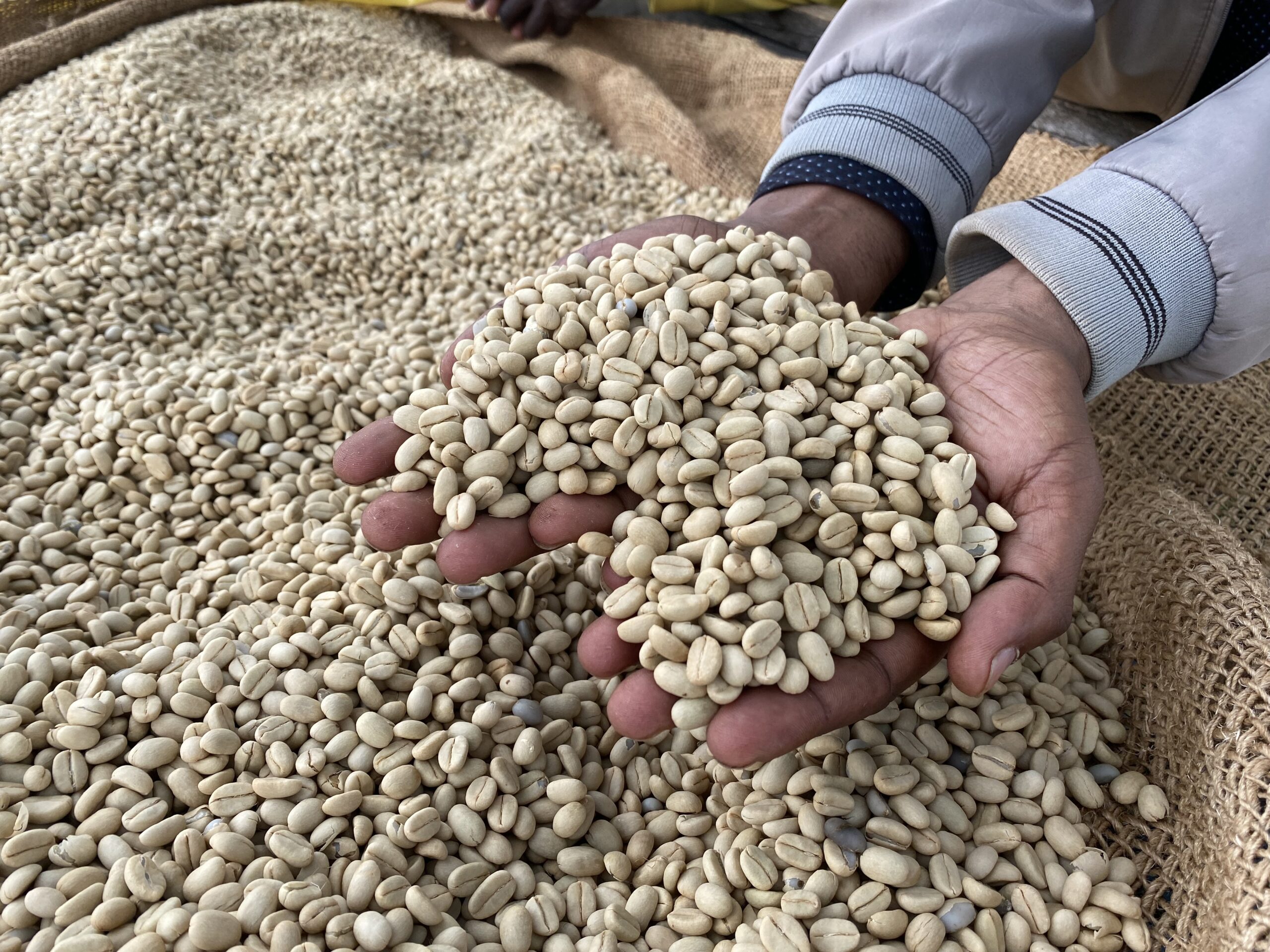Producing and processing coffee is in most instances a labour-extensive work. Picking the coffee cherries from the coffee trees is typically done by hand and can involve hundreds of seasonal workers who are paid by the hour or by the volume of cherries picked. After harvesting, the cherries are sorted and weighed at which point they are ready for processing. This is the stage in the process which turns the coffee into a product suitable for sale and export and is the single most important factor in determining the flavour profile of a coffee.
There are two primary methods of processing coffee, often referred to as the dry and wet methods or as ‘natural’ and ‘washed’ coffee.
The ‘natural’ or ‘sundried’ process is the simplest way of processing coffee and is the most common processing method in Ethiopia. This involves drying the coffee cherries on patios or raised beds. Although this sounds straightforward, the ‘dry’ method carries the risk of fermentation or spoiling the beans; to avoid this the cherries need to be turned frequently. If you visit a coffee farm during this processing time, you will often see workers (nearly always women) raking the coffee beans during the day while exposed to the sunlight and then covering the beds by night for protection.

Coffees processed using the dry method tend to produce a more complex bean that is heavier in body and because the fruit is left on the bean for longer, the flavour of the coffee is more pronounced and the sweetness of the fruit transfers to the green seed. Once the dried cherries reach around 10-12% moisture content, they can be hulled – the process of separating out the prized centres from the fruits. At this point the beans are again sorted with any defects discarded, while the remaining are graded and prepared for transport.
The washed process is used typically in coffee-growing areas with more resources such as a large coffee farm or where exporters might have set up washing stations to receive cherries grown by smallholder farmers. It requires a large amount of water and a range of expensive machinery. However, it does have the advantage of producing a better-quality coffee because it reduces the potential of defective beans making their way into the final batch.
In this process the harvested cherries are first put through a machine called a ‘depulper’, which removes all the skin and flesh of the fruit to leave only the seeds and mucilage (the inner layer of the pulp composed mainly of water, sugars, and pectic substances). The beans are then fermented in large water tanks for 12-48 hours. Here enzymes present in the coffee fruits break down the mucilage which is removed from the seeds. After this, the beans are rinsed and then the drying process starts on drying beds (as for the natural method) or alternatively in mechanical driers, or using a combination of the two until the moisture content has reduced to 10-12%. Coffees processed in this way tend to have a bright and elegant acidity.

In Ethiopia roughly 60% of coffee is processed naturally while roughly 40% is processed as washed coffee. The processing method used arouses strong feelings. Because the washed method requires a much high usage of water, the natural method is more widely accessible as well as being friendlier to the environment. On the other hand, many smallholder farmers tend to prefer the washed method as they can get paid more quickly when selling on their coffee, and these payments might be the first form of income for several months at the end of the growing and harvesting seasons.
Champion’s Choice is a Grade 1 coffee that has used a ‘natural’ process, while Emperor’s Delight is also a Grade 1 coffee but processed using the washed method. Can you spot the difference in their flavours?




